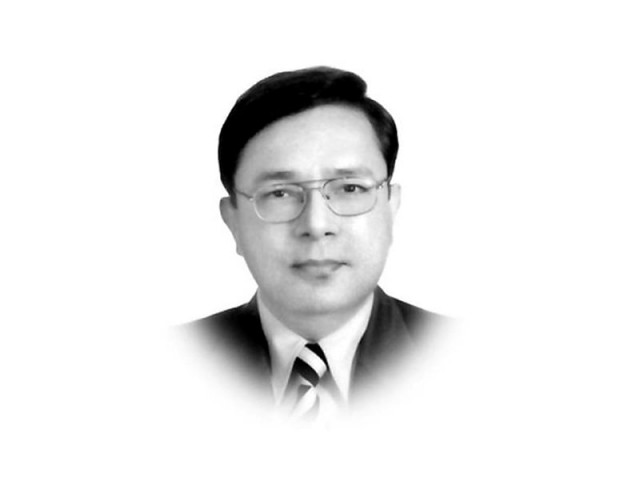China’s new political elite
New leader Xi Jinping will don four caps of leadership in the Chinese political spectrum.

The writer is a PhD Scholar at West Virginia University in the US
Power in China is contingent upon two major factors as defined by Lowell Dittmer — ‘formal office’ and the informal web of ‘elite connections’ that Chinese refer to as ‘political base’ or zhengzhi jichu. The Party and the government in China are two-in-one, with membership in both the party and the government overlapping. The government is headed by the prime minister chosen by the national legislature (the NPC consisting of 2,949 members), along with the 30-member state council (cabinet) picked by the prime minister himself. The prime minister and his cabinet are responsible for the day-to-day affairs of the government.
However, actual power lies with the seven-member Politburo Standing Committee that is appointed by the central committee of the Party. The general secretary of the CPC/president of China presides over the meetings of this powerful committee. Key decisions regarding foreign and domestic policies are taken by the Politburo Standing Committee. The national legislature, i.e., the NPC, just provides legitimacy to the decisions of the party leadership by giving them its rubber-stamp. Its members are elected by the local township, county, municipal and provincial-level party comrades.
China is not a democracy but a one-party led nation. The CPC is the only official political party that contests elections and holds power. China poses two major threats to the western philosophy of politics, which is based on two major ideas — democracy and capitalism. Democracy and affluency are twins. The dominant theory in politics, ‘democratic peace’, asserts that democracies are less prone to war and do not fight each other. Similarly, the ‘rational choice’ theorists, both in economics and politics, insist that major economies also do not fight. And only democracies are major economic powers. However, China is neither a democracy nor a capitalist economy but has still made huge economic progress, along with having a peaceful foreign policy towards the region and the world. These are the two major challenges before the country’s new leadership, to sustain economic development and make peace with the world, especially with Japan and the West. China’s new political elite has a better understanding of the West compared with its past leadership.
Other major challenges before this new generation of Chinese leaders are massive corruption plaguing the party and state, brain drain, a declining growth rate, poverty, the increasing gap between the rich and the poor and socio-political cleavages dividing society. On the foreign policy front, the leadership will have to handle various issues, like disputes over islands and shoals in the South and East China Sea with Japan, cyber-hacking, North Korea’s nuclear issue, and US President Barack Obama’s plan to increase focus on Asia, along with China’s relationship with other countries in the region, including India and Pakistan.
President Asif Ali Zardari had foreseen China’s future economic prospects and, therefore, frequently visited the country to develop trade and business relations. The landmark handover of Gwadar port to China marks the beginning of a new era in Pakistan-China economic relations. Due to its strategic position in the region, Pakistan has the opportunity to promote its economy by developing trade with China. The new century will belong to Asia and Pakistan should not lag behind.
Published in The Express Tribune, March 19th, 2013.















COMMENTS
Comments are moderated and generally will be posted if they are on-topic and not abusive.
For more information, please see our Comments FAQ